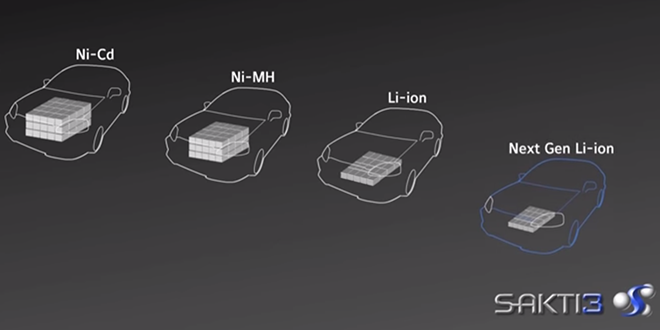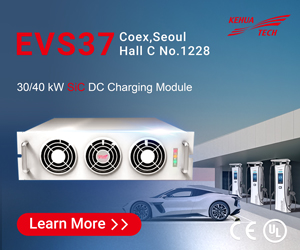Dyson, the manufacturer of high-tech vacuum cleaners and restroom hand dryers, has acquired Michigan startup Sakti3 for $90 million in cash, as reported by Quartz. Founder and CEO Ann Marie Sastry will oversee development of her company’s solid-state battery technology as an executive for Dyson.
UK-based Dyson, which invested $15 million in Sakti3 last March, also plans to build a new battery production plant, with an investment of up to $1 billion.
The EV community has followed Sakti3 closely – in August 2014, CEO Ann Marie Sastry told Scientific American that the company’s prototype solid-state battery cells had achieved energy density of 1,143 Watt-hours per liter – more than double that of today’s best lithium-ion batteries. GM Ventures invested a chunk of change in the company in September 2010, and some speculated that Sakti3 was a contender to provide batteries for GM’s upcoming 200-mile EV.
Solid-state tech was in the news again recently, as auto parts giant Bosch bought Seeo, another solid-state battery startup.
Is all of Sakti3’s pioneering work really going to end up as a way to improve battery life in cordless vacuums? Neither Sastry nor Dyson CEO James Dyson would comment on speculation about future plans to provide batteries for EVs, but Dyson did say that he’s not ruling out the possibility that Sakti3’s technology could be licensed to other companies.
“We are very fortunate indeed to join and become a contributor to not only Dyson, but hopefully help get solid-state battery technology out into commercial products much, much more quickly and efficiently,” said Sastry. “Where this will take us isn’t yet something we can comment on, but it is sure to be exciting.”
SEE ALSO: Tesla tweaks its battery chemistry: a closer look at silicon anode development
Source: Quartz




















































